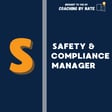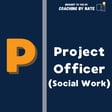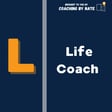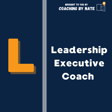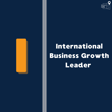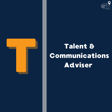Become a Creator today!Start creating today - Share your story with the world!
Start for free
00:00:00
00:00:01

Solutions Manager & Trained Software Engineer with a flare for talking
In this week's podcast, you will meet King, a Solutions Manager& trained Software Engineer with a flare for talking.
With his ultimate dream to become a teacher, he is putting the steps in place now and getting ready for his next career pivot.
Transcript
Podcast Introduction
00:00:05
Speaker
Welcome to A to Z Jobs, the podcast that delves into the fascinating world of careers, one profession at a time. In each episode, we'll deep dive into a specific profession, exploring its history, requirements, challenges and rewards. So get ready to expand your horizons, challenge your perceptions and discover a world of possibilities.
Meet King: Solutions Manager
00:00:24
Speaker
I'm Roxy. And I'm Nate. And we're excited to host you on this journey.
00:00:28
Speaker
In this week's podcast, you'll meet King, a solutions manager and a trained software engineer with a flair for talking. With his ultimate dream to be a teacher, he's putting the steps in place now and getting ready for his next career pivot. Hi, King. Welcome to our podcast. Hey, Roxy. Hi, Nate. Thanks for having me. It's lovely to have you. And let's dive straight in, like I always say, with our first question of what do you do for a living?
00:00:56
Speaker
I'm a short version of my title. I'm a solution manager. So a longer explanation, what I do is I help clients onboard their product onto our platform. So I work for a software company, and our clients, they have trade, they have their assets, they want to move on to a system that manage the portfolio, and they want to trade it. That's my company, not mine, but the company I work for. So I help them to move
00:01:23
Speaker
their information onboard to our system. So that's what I do.
Transitioning Clients to Digital Platforms
00:01:28
Speaker
Wow. So it's a full moving from one system to another, or is it just onboarding onto the software that your company provides? Yes. So all of them. So they could be having another system existing using it and they're moving on to us, or they could be using another system like we all know very well is called Microsoft Excel. I'm not sure that it's good for copyright, but
00:01:51
Speaker
They're using the spreadsheets or they're using literally books and records, who have seen those as well, and they're moving on to electronics or something a little bit more manageable. And I'm there to help them every single set of the way. So what are those lovely manual systems that go into the big, beautiful databases? I've been there about three times in my career, I think. Lovely. The solid Excel suite that you're trying to convert into a software, I think you've probably got a lot of patience.
00:02:21
Speaker
Sometimes, sometimes I think I do. Sometimes I need to have them and sometimes I just forget about it. So what does a day in the life of King look like? What would a day look
Role as a Client-Team Coordinator
00:02:35
Speaker
like? Oh, recently, actually, I just have a lot of meetings, together, requirements, go on waves, you know, sometimes I have meetings together, the requirements and catch up and check with customers.
00:02:50
Speaker
And then I'm literally the middleman. So I talked to the customers get to know get to know them, get to know what they need, get to know what they want. And then I'll go back, talk to my team. So right now my new role actually new company, I do a lot less hands on we have another team that helping me in the background. So I just get a requirement digest a little bit and then spit it out and tell them what to do.
00:03:15
Speaker
And later on, when things are done, either I probably should check it sometimes, most of the time. Let's just say all the time. I'll check them first and then we'll send it back to clients for verification.
Challenges in Solutions Management
00:03:26
Speaker
They're happy, they sign up. So this is a perfect scenario, but things are never perfect, right? You get the requirement, you tell the team how to do it, they have a question to ask, iteration, go back, rinse and repeat, and then things are done. Our scenario is you talk to clients,
00:03:44
Speaker
You think you understand them. They think they understand themselves, but you know, sometime might not be. So I have to go back and do the whole cycle again, back and forth, running back and forth like a headless chicken. Sometimes I don't even bring my head to work. But yeah, so basically that's what I do the entire day. Meeting with clients, meeting with internal staff, meeting my friends, you know, I have other colleagues I work with. So a lot of collaborations.
00:04:13
Speaker
So you mentioned a team you're working with. So what, what sort of roles are they doing to enable you to do your role? Let's just say they are the executor. I'm more of a gather, gather requirement and find all the parts, like find them here. Here are the parts. You know how to make them make it happen. Cause I know what it's supposed to look like at the end. They know individual parts. So I can make sure that they connect together at the end.
00:04:41
Speaker
So I tell each person one part, and they say, hey, you need to talk to A, you know, to B, and then you have this connector, you need to make sure they connect. And you know what? Once it's connected, just like water, just like pipes, once you're connected, water's supposed to flow through. If the water come in as clear, it comes as black, something is wrong. So we have to check on that. So stuff like that.
Career Journey and Training Importance
00:05:02
Speaker
Okay. So there's a lot of coordination, a lot of overseeing. Yes.
00:05:06
Speaker
And a lot of understanding. So you've got to understand the full picture. So if a client is asking you for something, you've got to understand whether or not it can happen or if you've never done it before, you've got to try and see if it can happen. And that's where the pipes come into place because you've got to try and put all those different pipes into place with that understanding of the software and what the capabilities are.
00:05:31
Speaker
this is how the client's being communicating it. I know from experience that I was not the best client to communicate these kind of things. And they usually aren't. They usually people don't understand the software, don't understand what can happen in the background. So how do you, in your day-to-day, track that knowledge or that whole puzzle piece of what you're trying to do? Did you go through training to
00:05:58
Speaker
for that software that you're working with? Oh, yes and no. Yes. Of course, I need training for the software I'm currently working for and on and with and in. But for the whole process, I've been in the same industry, you may say, for very well, I cause it as a very long time. I've been in this field for the past eight years.
00:06:20
Speaker
So I kind of know what's going on, what they're thinking, which helps. The only part is new. I just joined this company not for a long ago, less than two years. I consider it as new. A lot of people consider it as old. Depends who we're talking to. So I know the internet, what clients are thinking about. I just don't know what the software, exactly what they do certain things like the nooks and crannies, the very detailed parts. For the majority of parts, I kind of know it okay. The feature is about the same between two companies. So yeah.
00:06:50
Speaker
A lot of trainings, of course, is the software. Although the financing part, the technical part, it's not changing that one plus one is equal to. That doesn't change much. But how you make that happen changes a lot throughout time, even with the same software. Sometimes a button here, sometimes a button here, sometimes you put a spreadsheet in, sometimes a spreadsheet coming from underneath. Sometimes you spit out a spreadsheet and sometimes you have this button here. So the software part changes from time to time. I'm just using some very
00:07:20
Speaker
high level, simple scenarios. But yeah, I just need to learn more what the feature is and anything new. Oh, this calculation has been around, but you know what? We have enhanced it. It's so much better now. We have a brand new screen. You should really introduce your client. Oh, great. So how do I use it? So stuff like that. We do have training for those. Brilliant. So how did you get started in all of this?
From Software to Finance
00:07:42
Speaker
Oh, that's a very good question. I have, I'm from a very technical background. I am a software,
00:07:49
Speaker
I started off as a software developer. Actually, that's not even my first job. Well, actually that is sorry, I take it back. I started as a technical background as a software developer. And once I have work elsewhere outside of Hong Kong, I'm in Hong Kong. And when I came back to Hong Kong, I just like, okay, so I should go back to my root because I'm from a tech background, I want to find something techy.
00:08:15
Speaker
Well, techie, not that techie. And I found one is within the area of finance. Hong Kong is big in finance and business and all that. Everyone is in business school and I did not want to do that. But that's where the money is. And I started with one company and that's where I started. It was on something slightly different, but very similar. That was a long time ago. So that's how I found them. There's just a lot more opportunity in the finance sector.
00:08:43
Speaker
Yeah, definitely. I think finance has so many options and so many things that open up to it, right? Yes, and also a lot of money, which I like. Did you study to be a software developer? Did you go to university or like certificate? So how did you get to that stage? Oh yeah, my background, I study computer science as my degree. So I'm a software developer by trade, I guess.
00:09:12
Speaker
I can do more than finance, but software engineering is what I did in my studies.
00:09:40
Speaker
It is amazing that, you know, with a software engineering degree, how many different avenues you can go into as well. My older sister did that degree as well, but I can't remember exactly what she majored in. She's now a real estate agent. That's a completely different story. But, you know, she went into a couple of different jobs and one was actually finance, but there's, you know, her husband, same degree, that's how they met each other. He's developing the chips.
00:10:08
Speaker
in some of the credit cards and things like that. So it's got so many different avenues as a degree and so many things you can try. So I get it when you say it's a tech background and software development, but there's just so much extra as well on top of that. Yeah. How I usually describe is computer science in general is like a tool. It's like a toolbox. You have a screwdriver. What do you use it for?
00:10:37
Speaker
many, many things. Some bake a cake with it, I don't know how. Some fix a bike, some fix a car, some do something else we don't want to talk about. But yeah, as a tool that you can mold it whatever way that you want, and it's a basic knowledge that that transfer to different industry.
00:10:55
Speaker
And thinking about your career journey then, is this where you start your degree as software engineer?
Aspiration to Teach
00:11:00
Speaker
Is this sort of the path you'd sort of wanted to take or you just sort of, let's just see where this leads or what sort of... Actually, yes and no, I did not, this is not my first job. So I did say my first job is also developers. I started, well, I work in summertime when I'm having breaks between semesters. So I was a software developer, the first real job that I get paid for.
00:11:25
Speaker
Let me think. Yeah. And then, I mean, part-time job doesn't count. I do like fast food places and stuff like that. But the first job that out of college, out of university, I was actually a teacher. I always, I, at the beginning of my study, I always wanted to be a teacher. Well, because I think that's what my dad was. And I think that's cool. That's fun to do. And also in Hong Kong, teacher actually got paid really well.
00:11:52
Speaker
well, besides they have other stress that piling on them, but they do get paid really well as a pretty stable job as well. So I always thought about that. And during my study, I just kind of focus on college, you know, parties and class and part times and, you know, exams. I forgot, like, my university is actually got really good education, education program, I thought of doing it, but I forgot about it. And at the end, it's like, I'm done with school, let me just get out of it as soon as possible. But
00:12:21
Speaker
By chance, one of the jobs I found right after college is teaching a teaching job and which is which is quite cool. I still and really enjoyed it. That was one of the few fun moments I've ever had in my life is what is not expected. But then it's just the environment is great. I just like what it does. I still actually do want to do professional training. So I have evolved that goal a little. But that is my background. That's why I say I want to
00:12:48
Speaker
live my life and then use whatever I learn and then see where that leads me. But so that's a really long, long thing to answer your questions. Like does it land naturally?
Advice for Tech Newcomers
00:13:01
Speaker
No, I just weaving through options and stuff I can do, trying to decide what I like to do, what I can do and what actually pays the bill. Yes, finding the balance.
00:13:13
Speaker
It's very similar to everybody's career journey. It's those steps and finding out the different paths you can do and what you enjoy versus also what you're good at and that side of it. What did you teach? I taught, well, because my visa issues and stuff, I had to teach computer science. So that is one of the subjects and that school I went to, they actually need a Chinese teacher. It was in the US, so I also taught Chinese.
00:13:43
Speaker
And because I have an engineering-sized math background, whatever you call it, I also taught math. And they desperately needed PE teachers to just scream at the kids and run around. So I also taught PE. Brilliant. Brilliant. Yeah, it's fun. I really enjoyed it. If you had to give someone advice to get into this career where you are now, if you could do it faster, how would you recommend doing it? Is there a faster path?
00:14:12
Speaker
to doing this type of work? My kind of work right now? Yeah, definitely. It's just to need a degree and find a company similar to what mine is and then just sign up. They hire a lot of graduates fresh out of the college. You just need to be sensible and logical and that's fine. I don't think there is a super fast track, but it's not slow. I would suggest to start with support role in my
00:14:41
Speaker
in my area because that you get to expose a lot more and see what's wrong because you're you're kind of not the bottom feeder but everything flows through to you and then you kind of catch everything the good and the bad so you know what's going on before it reaches you and you know what what needs to be done better and what can be done better you have seen things at the best and that they're worse worse for me because I kind of joined into this in the middle later stage because right now I'm less of a software developer more of a
00:15:11
Speaker
talking person and coordinator. So is it slightly different? And if you want to do what I'm doing, well, for people who are interested in what I'm doing right now, I think start with the support part of things would be very good. I know that nowadays in Hong Kong, at least the company I'm working with and the competitor, which is my excom, my old company, they have very competitive package and they have very good training steps and solutions as well.
00:15:39
Speaker
So I think that would be something to look into if anybody is interested in this profession. Fantastic. I have a very sideways question for that. Are there many females in your industry? Surprisingly, yes. Brilliant. Hong Kong's great then, considering the UK. Well, actually, America's getting better within it. But yeah, the UK was pretty hard. My sister struggled as a female.
00:16:05
Speaker
to get hired and it's just more curious than anything. Yeah, we have a lot of, even for my first job, well, it's not half and half, but definitely like almost like 30, 40% female staff. And we have it here as well. That's what I said, because for support industry, for the support side of things,
00:16:28
Speaker
We have a lot of ladies and even from a technical like school wise, a lot more girls are doing computer science. And actually some of them are better at it because they are, they're more detail minded. Whereas guys are just like, go at it and oh, you missed a zero. Oops. And that makes a lot of differences. The thought process are different. So I would encourage like, do it. Don't worry about your gender. Just go for it.
00:16:56
Speaker
is what you do best and what you do good to best or what you like versus the gender. I think nowadays, there is still out there. I am lucky enough that I'm sheltered and also I'm lucky enough that I'm in one gender. But then it shouldn't be something that stop, should be the main reason that stop you from what you want to do. Yeah, definitely. If it's what you're passionate about, you should just keep going.
00:17:23
Speaker
someone will pick up that passion, that optimism, and take you on. Yeah, absolutely. So what's your favorite part of your job at the moment?
Building Relationships and Meeting Drawbacks
00:17:35
Speaker
Talking. Yes, it absolutely is. A lot of my friends, ex-colleagues, wherever you call them, and my current colleagues, like, yeah, you can talk. Yes, I can. I'll be very tired from time to time because I do have calls from 10am to 6pm.
00:17:53
Speaker
with lunch break, you know, bathroom break, lunch break, I've called entire day. I think recently is the first time I was like, Oh, I'm really tired of talking. But if you, Nate know me, and I just like to keep talking, it's not a problem. So this is probably one of the best thing I can do is to be able to talk. And I do like to talk to people and try to see how I can, well, not make them tick, but you know, to get them what they want. And
00:18:21
Speaker
Yeah, that's something I like to build a relationship and to be able to talk. Brilliant. How do you recharge, you know, if you keep talking from six to 10 to six, how do you recharge in the evening and come back and do it again the next day? How do you just keep going like that? I think that's why I just like to talk. I do. I mean, we have to take trains and buses home or I just need a short break. Like I'm so exhausted. Give me five minutes.
00:18:50
Speaker
Like we'll eat a little bit and there's only one mouth. So thank God, I can only eat or talk. I can only do one at a time. If I can, I'll eat and talk at the same time. So I have some downtime. I don't need to have that much. Um, also when I'm, if I'm meeting friends, I have to at least walk five, 10, 15 minutes. So that's good enough for me.
00:19:13
Speaker
And I think it started from even my, my first real job, even the teacher, I will have class the entire afternoon. I'll be talking the entire time, which is fine for me because I, oh, how do you do this? Like, I don't know. Maybe I didn't talk enough at school because during project time, I'll have to like sit down and do computer work and do my coding, you know, for hours and then that I don't see. Well, I see all the humans besides me. They're all coding, but we don't get to talk. I mean,
00:19:44
Speaker
I like to talk at the sense that I even talk to my monitor and my books and stuff. My college is like, stop talking to your monitor. It's like, I know, but then the code's wrong. It will listen to me. Yeah. It will listen to me better. I know it does kind of jobs. You're almost sitting in the dark, right? With the monitor, you know, just cracking away at everything and it can be so isolating, but you know,
00:20:10
Speaker
In that industry, I think everyone feels the same way as you sometimes. So you do end up having longer conversations in the kitchen than you really need to. Yeah, you take a break, you go to have a not wine cooler, but water cooler conversation. So what about what about the negatives in your job? What stands out as something you really don't, you don't like? It would be the same thing talking because I've been talking so much. It is a blessing on the curse. Sometimes I always talk too much. And then you
00:20:38
Speaker
Sometimes you know too much or sometimes you hurt too much or you overthink too much because you have all the information thrown at you. So that's one of them. The other thing is you lost track of time. You enjoyed so much or you have so many calls. There will be times that I've been just talking all day and I still have a bunch of tasks to do. Although I have a lot less actual tasks I have to do, I still have to do some tasks. People waiting for me to respond to their questions.
00:21:07
Speaker
I have to find someone to yell at them, then when can I do it? I can only do it after my meeting. So sometimes, oh, at 5.30, finally I can start working. I finally can start messaging them, emailing them, and yell at them. So that's a good and a bad. That is hard. Just talking and in meetings all day and you can't action anything at a very similar job to that.
00:21:32
Speaker
you know, 530 and then firing off all these emails to everybody that are heading home. You just feel terrible, but that's to happen because it's the only time you're going to do it. Yeah, exactly. And it's just tiring sometime. But then, oh, and also because of that, keep having meetings doesn't give you a satisfaction of completing things. So you do get a lot of satisfaction of completing tasks.
00:21:59
Speaker
So that's something, some time is missing, but you know, you learn to create smaller tasks or create something in between that you can complete. Then, uh, once in a while you do need to sit down and shut off. Like I'm not talking to anybody. Let me just finish this task so I can feel good and actually get something done. Yeah, it's brilliant. You can try and organize all the meetings or one day. So you have one day to do it all. Yeah, absolutely. Absolutely. Or sometimes take a sick leave. I do. I'll take a sick date.
00:22:29
Speaker
I'm sorry, I'm sick today. I'll talk to you tomorrow. I am a firm believer of mental health days. My mom used to call them duvet days. So you go and you stay at home with your big duvet or a big cover on and you just watch TV and you just chill out. Nothing else in the world matters. You don't actually have to be sick, but just recharge. It is so good for you.
Mental Health and Productivity
00:22:53
Speaker
Absolutely. I completely agree with that. I need that too.
00:22:58
Speaker
It's always an argument with my husband. I'm like, you have all these personal days for a reason and you're never sick. So just take a day, go and do something you enjoy. You're absolutely correct. I think mental health day, whatever they call it, it's very important. Take a break. Sometime you hit a wall or you're like very frustrated with things. Like just take a take a day off. Yeah. We call them wellness, wellness days at our work. You get get a sort of, you got your annual leave, but then you also get a little portion of wellness.
00:23:27
Speaker
wellness days to do exactly that and you're not judged for it. You're expected to use it within that year. You don't get to build them up, so use them and recharge and come back and be productive. I feel like Australia is the only country where you can actually hold on to your holidays for life. Like Hong Kong, the UK, America, you've got to use them or lose them. You guys can hold on to it as long as you can. Yeah, they're yours forever. Oh, wow.
00:23:56
Speaker
Well, for us, we just don't have enough time off. Like for those wellness day, you know what, some talk, excuse me, for some time, we'll just like, Oh, you know what? I have a very long holiday coming up. So let me see how much I can just scrape up like under the table. It's like, I'm like that. And I was like, Oh, I have a trip coming up. Do I have enough time? Oh, I have the sick tag and perhaps use it, you know, so well as they sometime actually got used to that, um, holiday and sometime holidays tiring. That's Nate. Yeah.
00:24:29
Speaker
They are tiring holidays to recover from the holidays. Absolutely. I've been saying that we need a, whenever a man, my husband go on holiday, we go on a cruise. We need a cruise after a cruise to just recuperate because the first cruise we go party and go crazy. And then, yeah, same thing for work. You do work and you go party, but then afterwards you have to, it's a, it's a, as a relaxation is a balance, but at the same time you're busy.
00:24:58
Speaker
working, busy partying, so when do you get to rest? Exactly. That's tough. I just wanted to actually go back to the profession question. What made you go into software engineering and software development?
Choosing Software Engineering
00:25:15
Speaker
It's not very glamorous because I just like to play on computer and by the time I've just like my major is like, Hmm, what do I like to do? I'm not so sure. Let's just pick computer.
00:25:24
Speaker
So that's exactly how I got into it. I'm very, I'm always interested back in the days. In those days, computers are not as fancy, you have to tinkle a little bit around to make things work. And I like to do that. I like to see how things are working. How can I break things to make people tick? And how can I maximize what I have by internet and downloading some legal music?
00:25:54
Speaker
At that point, I don't think anybody was, but yeah. Yeah. So I'm interested in all these and why not? A computer at that time has a nice ring to it. Everybody's about IT, computer stuff. So why not go into it? And at least I'm doing something I like. If I don't know what I want and I really want to do, let's do something I like first. So that's how I started. Following a passion. So that's the way to do it. Yes.
00:26:25
Speaker
Definitely. You talked about, you know, going into sort of a support function as the first thing that you would do, and that's where you would make it a little easier to learn.
Communication in Tech Careers
00:26:36
Speaker
But would there be any other advice that you would give to somebody who is trying to start a career in your profession or any kind of resources or anything that have helped you? Internet, know how to search.
00:26:53
Speaker
Really, I think is not so much for just my area, but in general, learn how to search things, learn how to edit documents. Now, I think for people who might be listening to us and for now, know how to use AI, how to ask the right question. I think that's not just now. Asking the right question is very essential and important in life in general.
00:27:21
Speaker
And now so much, so much, so much even more important because if you don't search it faster than any others, that's it. If you don't ask the right question to AI is not generating the things you need. So we're seeing a lot of things now. It's just asking the right question. I think by talking to people and by conversation, learning other people's stories, knowing what to ask to get what you need is very important.
00:27:47
Speaker
I don't think that is something that you can learn. Well, that is something you can learn a light. You can learn that, but you need to practice it to perfect it. I'm still learning. I'm not very good at that, but I am might be better than 50% of the others than I already have an edge. So that actually helps with just about any industry, but especially for mine, because you're communicating with clients, you have to make sure you ask the right question to give you the right answer.
00:28:13
Speaker
And you know how to guide them to the answer sometimes. Sometimes you don't want to just throw things at them. A lot of times you want to throw things at them, literally. But for information-wise, you want to guide them to reach a conclusion. So it sticks. So this is a lot of trying error and getting to learn. So for things, that's one thing. And the other, this is personal. I really like to know how to communicate better and talk better.
00:28:43
Speaker
So communication is key in any industry. Well, in coding and like, you know, technical is more so your skills, but that is something that you learn from school. So you know if you're good or not. But then for any other things around your main piece of skill, I think those two are important. It's definitely, and even with coding and technical, you're sort of working towards a brief in some ways as well. So there's that communication aspect of it as well, where you
00:29:11
Speaker
you're trying to work out what someone's trying to get you to do. So it's learning different people, languages and environments around that. And I think that's a brilliant thing to do. And you can only do that by having as many conversations as possible and being quite thorough with your questions, picking the right questions, working out which ones work, which ones don't. I've spent many years doing that, trying to be more efficient with the kind of question that I ask somebody.
00:29:39
Speaker
But it comes out as a waffle no matter what. You it's already better. You just don't realize that. Yeah, soft skills, soft skills, definitely something would be helpful. I'm still I'm still trying to learn that any any chance I can go to a seminar can go to a class. Things that haven't gotten to is I haven't gone to a lot of tech talks Ted talk. I think some of them are very
00:30:06
Speaker
very helpful. I've heard from others. I hate to say this, but I'm too busy for other stuff.
00:30:15
Speaker
TED talks are addictive, you'll listen to one and then suddenly nine hours later, you'll realize you're still listening to them. So they are good and you can often get summaries, like there's some websites where instead of having to listen to a three hour talk, they'll trim it down for you. So when you're on the bus, you can listen to 10 minutes and pick up the key points. So there is bite sized information out there so you don't have to fully commit to. There you go, great.
00:30:46
Speaker
Thank you. Yeah, so maybe that too. I think there is a podcast that actually, I'm trying to think of what it's called, sorry, that sort of silences, that actually does the shortened TED talks. I remember listening to them a couple of years ago, but I might be wrong. I might have just sat there and worked listening to them for hours. My work actually circulated one and I just put it on YouTube or something and just listening to it in the background, I listened to that one more
00:31:13
Speaker
But then suddenly the whole day is gone and I've just been absorbing this TED Talk all day. Or if you have a long commute, then you can just do it. Or driving, if you have a long drive, I love listening to audiobooks back in the day. You can know where I'm from, at which time. But the same thing, if you have nowadays plugged in, not even plugged in, beam it to your Bluetooth, whatever, in the car and you drive a road trip, that's great.
00:31:44
Speaker
a bus ride in Hong Kong with traffic. It's great. You can do that as well. There is actually a TED Talk that inspired, was one of the things that inspired this podcast and our career coaching company. It was, I can't remember the name of the lady, but she's talking a lot about different careers she's had throughout her life and how we've changed now, you know, gone are the days where you have to have
Inspiration from TED Talks
00:32:09
Speaker
the same career for 20 years to look attractive. In fact, if you do stay in the same career for 20 years some people now think it's weird and wrong.
00:32:18
Speaker
Um, you know, it's that, it's that generational feeling that talking and actually just giving things a go and showing that you can execute things rather than just, you know, staying at the same thing and doing the same thing over and over again. And she had some really beautiful key points to just, you know, being a mum as well, and going through that and being a wife and, and being a wife to her husband and seeing how that
00:32:44
Speaker
relationship develops and moves forward as well as her career and how she finds who she is in each career and learns different things. And I just remember listening to that and sending it to Nathan. I go, we have to just interview everybody, please. And here we are now. Yeah.
00:33:03
Speaker
Yeah, so you never know a TED Talk could like spike any kind of thought moving forward and anybody listening could possibly come up with a company or a million dollar idea or change passions. You get inspired to do things that you didn't know that you wanted to. Yeah, exactly. That's always great.
00:33:23
Speaker
For me really with like the software side of stuff I'm always quite eager as to how someone got the idea to go into it and a career as well because I don't know from the people that I know and love within my life they've always either had someone in their lives or they've seen something inspirational or someone down the pubs told them to go and do that job so for me it's quite interesting to just see like why you decided to study software engineering.
00:33:52
Speaker
Um, because for my sister, it was very much my dad, very interested in computers and taking that apart at home and trying to put the computer back together. And, and one of the, you know, key things she thought of while looking for a career was it was something that could open up a nice financial opening. You know, absolutely. Same story everywhere. What can make you the most money if you don't have a lot of passion about that works.
00:34:22
Speaker
I mean it's a it's school is the first step you can always learn more later on. Definitely yeah. I find it interesting because you've managed to find you've managed to use that background but then find a job that suits you perfectly like you've gone down the path of you love talking but you love the the the techie side as well and you've managed to steer your career to find that and I think
00:34:47
Speaker
That takes a lot of guts. A lot of people don't. They'll get their first job in the industry they studied for and they think that's where they're stuck and that's what they do. Whereas you've taken, you're reflected on what it is that makes you happy and you've chased that down. And I think that's amazing. I think there's a lot to be said for that.
Future Career in Professional Training
00:35:05
Speaker
Yes. And at the same time, I think it's part of luck. Or it's destiny, whatever you call it. I'm in an area.
00:35:15
Speaker
background community, I'm in a place that is abundant with these kind of job, right? And this is a place I hate to say it, but this is a place that doesn't appreciate technical staff a lot. In Hong Kong, Hong Kong is very business driven, whereas anywhere else, I have friends who are developers, they're, they're brilliant, they're good. But they're just not very appreciated here in Hong Kong, at least not that I find it's just in the environment.
00:35:44
Speaker
I call us Hong Kongers very adaptable. We try to adapt whatever things throw at us or wherever the environment we're in. So I think part of it is luck. I just make live gives you a lemon. You make a lemonade with meringue. I don't know where the meringue came from, but you find it. So I think it helps. And also I'm still navigating. As I said, I enjoy my teaching part. I wanted to eventually go to professional
00:36:12
Speaker
if I can, uh, training, because I met a friend of mine. He, he's a professional trainer. He still does. And it sounds great. And one thing he told me is do what you do now, gather experience, because you need various experience from different side of life, different time of life. And then when you're doing, if you're going to training later on, that might help.
00:36:39
Speaker
I don't know when that part is, but then I am doing what I can do. And I think I'm doing better now. I move on to various tasks that I haven't done before. So let's see, let's see how that goes. And I always pick on things that I like to do during my job. It makes life easier. You have to do that for eight hours, sometime more a day. If you find things are good within what you do, it will go a lot faster. Sometimes that's a good thing. Sometimes that's not.
00:37:08
Speaker
will make your life easier. It reminds me of a quote we had a guest on a few weeks ago and he said, always have three horizons, always look for you got your current horizon, what you're currently working on, but you start planning three, you know, two more horizons in front and that sort of resonates with what you're doing now. So you're getting that experience, you're working in your current horizon, but you've already got that
00:37:32
Speaker
that plan of the direction of the training. So, you know, you've got something to look forward to still. Yeah. You know, you're setting that concrete down for the next step. And I can tell you with training, it's a very good thing to do, you know, carrying on with what you're doing and then going back into the training realm of things. My career very much started in teaching filmmaking. And now 12 years later, sorry, 14 years later,
00:38:03
Speaker
I've gone back to teaching again, and I just know so much more. There's so many other stories I can tell now. And I just feel so much more valuable than like, you know, 16, 17 year old self who was still learning as they were learning, which in some ways is a good way. But you know, there's just so many extra nuggets you can pass across for real life experience. Great. Sounds good. Yeah. You have so much more to
00:38:31
Speaker
for people to look forward to or things for them to avoid. Yeah. But really have to think about that.
Challenges in Video Editing
00:38:38
Speaker
Yeah. But that's great. Oh, it's cool. Teaching filmmaking. I tried to edit videos. I tried to, I, I was inspired to do, I don't write, but I talk, right? So I thought about doing vlogging and then, you know, filming and I'm just trying to put things together in a video. It just, heart is tough.
00:38:59
Speaker
I already have a simple software, you know, put things and just like cut here, cut there, put the transition and, and maybe some background music. Maybe it's because of me, I like to go to, I'm not very detailed, but then I am detailed enough to drive myself crazy. You're technical. This is the thing you're technical and you try to edit. It's hard work. Yeah. I was like, Oh, it took so long. What, how do people do like 12, 15 minutes vlog every week? It will take.
00:39:27
Speaker
And they still have to like film and plan, maybe plan, they plan to plan their blog. I was like, how do they do it? It's just impossible. Like I enjoy to do it. It takes so long, but yeah, maybe, maybe that's why I have to put another head on, like throw that technical head away and try to scrape it out and put something else in so I can do a little bit of that. The hard thing with something so, so creative and technical at the same time is it's really hard to actually finish a film project.
00:39:57
Speaker
Because if you're a perfectionist of any kind, you will just keep going, kind of like me editing these podcasts with Nathan at the moment. I just keep going, well, there's this thing and then there's that thing and there's this thing and then Nathan's like, just, it's beautiful the way it is, Rox. Stop overthinking it. Absolutely. He's right. I mean, I do the same. I am not perfectionist. I swear to God, maybe I shouldn't be more.
00:40:20
Speaker
people might hear me out there. But anyways, yeah, for editing, maybe don't do the first pass because that is really a rough, but then two or three more times that max you don't go to like, Oh, you know what? The breathing for this clip is not matching the breathing for that one. And you know what? And there's a little glitch and lighting and, Oh, maybe we should really normalize that, you know, you're nodding. Yeah. I was like, Oh, the transition be doing better.
00:40:48
Speaker
Instead of doing this one, you know, we should like smooth it out a little and then connect it. Right. Exactly. That's been my whole day. That's why you have a good partner to tell, Hey, this is time to stop. Yeah. Make sure you get a partner that is not perfectionist. Someone who just gives you the honest advice of like, you've got everything in there that goes and anything's perfect for that. Yeah.
00:41:17
Speaker
And then you know what? People will like it if they like it. So there's a lot of things. Now I'm transitioning to something I'm trying to learn about life and part of communication, how to appreciate that, how to live life, how to just be there and how to move on, how to move on.
Perfectionism and Acceptance
00:41:36
Speaker
It's hard. It's really hard to move on. I'm someone who actually hangs on to things. I'm a hoarder in real life and in not so real life.
00:41:48
Speaker
We're getting a bit spiritual now. There might be a good segue for you for the final question. Do you have a quote? Is there something that inspires you? No. I saw that question as like a quote. No, I don't have a quote that inspire me. But I have something new that is helpful with just about everything. We should all learn to take things at their face value.
00:42:18
Speaker
I love it. It's very helpful. Like you look for a job. Okay. They said no. Okay. Then that's no. Don't dig too deep. Yeah. Don't think about it too much. Yeah. Sometime for example, sometime they said that, Oh, you usually know how to speak Chinese to do this job. Okay. They just said it. That's fine. They can set whatever they want. I can still apply, right? Yes.
00:42:47
Speaker
Does it mean that you're not good enough? No. They just put it there to put it there. It's there. That is one thing. Yeah, but there's one thing that most people will go through an entire job description and because they don't hit every point, they won't apply for that job.
Encouragement for Job Applicants
00:43:05
Speaker
Apply for the job. See what happens. You never know. And if you don't get it, go and ask why. And if it is because you can't speak Chinese, you can't speak Chinese. We won't.
00:43:17
Speaker
I was doing an informal coaching session just last week, and it was the exact same thing. I've got an interview, but there's this whole segment that I don't have experience with. I don't know what I'm going to do.
00:43:32
Speaker
break it down, look at what the question is and then consider how you've been exposed to it before and if you were to deal with that particular situation, how would you deal with it? You've got the transferable skills, you've got the skill set for the job, just sit down. If you were in this job already and this landed on your desk, what would you do? And they've got the answers straight away, they know what to do, it's just that initial
00:43:59
Speaker
that initial fear of, oh, it's new, I don't know how to do it, I can't apply, I can't go to the interview. But the reality is, you've got the skill set, particularly if you're ticking every other box, you've got the skill set there, you just need to process and look at that skill set.
00:44:14
Speaker
and understand that there are also people in the world that are now applying for jobs using chat GTP, so they can't actually speak English or any kind of Chinese language, but they're applying because they're asking chat GTP what to say in that language. I recently had a candidate apply with me and he was using chat GTP to talk to me in English and he was Russian
00:44:38
Speaker
And his work is amazing, but how does a director tell him what he needs to do in Australia? You know, so I get to the point where it's like you're real and your work and everything is brilliant. You can bring it to the table, but I don't, and we can't sort of convert the language barrier there. So I tried to book him in for an interview and he goes, I have to be honest with you. I don't speak a word of English. I'm using chat GDP to talk to you.
00:45:06
Speaker
So, you know, if that person can apply for that job like that, what's preventing you from applying for the job that you want to do now? You know, you don't tick all the boxes, just give it a go. Exactly. I mean, they've been trying to do that, telling people, so yeah.
00:45:24
Speaker
Yeah, exactly. Well, thank you so much for your time tonight and all of your wonderful insight.
Episode Recap and Closing
00:45:32
Speaker
It's been wonderful hearing all about your career journey and getting to meet you. Hopefully, I get to meet you in person one day. Yeah, where are you, Roxy? I'm in Sydney, Australia at the moment. Oh, thank you very much for having me, Nate. Thank you. You know me, so you like a good chat. Sure, why not? I'll do it.
00:45:54
Speaker
Well, we really appreciate it. You're welcome. You've been listening to Roxy and Nate. Thanks for tuning into A to Z Jobs. And always remember it's your career and it's up to you to shape it. So dream big, make bold moves, stay curious and keep exploring. Check out our website at thecareerchangecoaches.com for more resources, tools and upcoming training.
00:46:22
Speaker
Thank you for joining us on this journey. Don't forget to subscribe and hit that notification bell. So you never miss an episode of A to Z Jobs. Remember, your dream career could be just one episode away.
00:46:38
Speaker
Are you feeling inspired by everything you've learned today and ready to take the next step with your career change journey? Dive into our four-part Career Change Made Easy course. We'll help you gain career clarity, understand your transferable skills, and put them into play with application, negotiation, and interview advice. Head to careachangecoaches.com.
